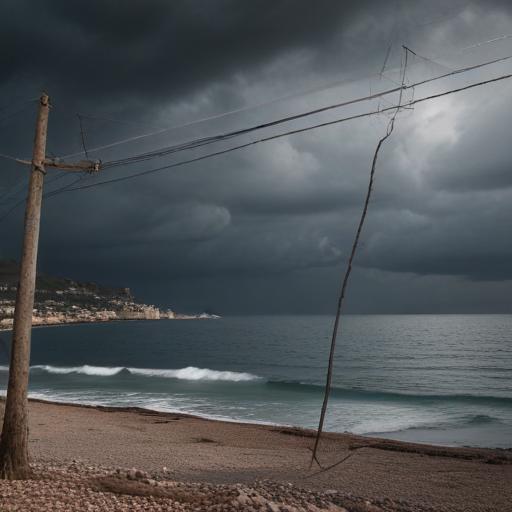French authorities are currently investigating a power outage linked to sabotage that impacted at least 45,000 residents in Nice, occurring just one day after a similar disruption affected the Cannes film festival. The incident in Nice was triggered by a fire set to an electrical transformer early on Sunday morning, although power was restored later that day. Prior to this, a separate blaze believed to be arson contributed to an outage in Cannes, disrupting services for 160,000 households and causing a ripple effect that shut down traffic signals and ATMs across the French Riviera.
During the Cannes incident, three of the four supports for an electricity pylon were reportedly cut with a saw, exacerbating the situation. The mayor of Nice, Christian Estrosi, denounced these “malicious acts” and stated that local and national police were actively involved in the investigation. The city plans to enhance surveillance around critical electric infrastructure and share relevant footage with investigators.
In comments regarding the Cannes festival power cuts, Laurent Hottiaux, the prefect of the Alpes-Maritimes region, indicated that certain aspects of the incidents seemed deliberate but declined to comment further while investigations were still ongoing. Enhanced security measures have been put in place as authorities continue their inquiries. Despite the disruptions, the Cannes film festival managed to keep its closing ceremony on track thanks to backup generators. The top award went to Iranian director Jafar Panahi for his film, which reflects his experiences of oppression under the Iranian regime.
In a related international dimension, tensions with Iran escalated as they summoned the French charge d’affaires in response to remarks made by French officials regarding the Iranian government and Panahi’s film. Iranian authorities refrained from acknowledging Panahi’s win but were reactive to what they deemed insulting comments.
The right-wing French MEP, Éric Ciotti, characterized the incidents as acts of sabotage and called for relentless efforts against such threats, equating them to terrorism. Concerns have been raised about the influence of criminal organizations, including claims linking them to foreign powers like Russia, in previous acts of sabotage across Europe.
This series of events underscores the tension and vulnerabilities facing essential infrastructure as well as highlights the broader implications of international relations. Public awareness of sabotage tactics is rising, which may lead to greater scrutiny of potential perpetrators and their motives.
While the situation is concerning, it presents an opportunity for enhanced security measures, community vigilance, and international solidarity against acts of disruption and terrorism. Staying aware and proactive can help communities strengthen their resilience against such challenges.
